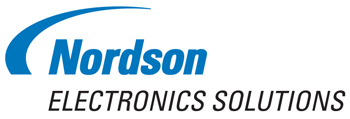Technical Library | 2024-08-29 18:30:46.0
The mechanical experience of consumption (i.e., feel, softness, and texture) of many foods is intrinsic to their enjoyable consumption, one example being the habit of twisting a sandwich cookie to reveal the cream. Scientifically, sandwich cookies present a paradigmatic model of parallel plate rheometry in which a fluid sample, the cream, is held between two parallel plates, the wafers. When the wafers are counterrotated, the cream deforms, flows, and ultimately fractures, leading to separation of the cookie into two pieces. We introduce Oreology (/Oriːˈɒl@dʒi/), from the Nabisco Oreo for "cookie" and the Greek rheo logia for "flow study," as the study of the flow and fracture of sandwich cookies. Using a laboratory rheometer, we measure failure mechanics of the eponymous Oreo's "creme" and probe the influence of rotation rate, amount of creme, and flavor on the stress–strain curve and postmortem creme distribution. The results typically show adhesive failure, in which nearly all (95%) creme remains on one wafer after failure, and we ascribe this to the production process, as we confirm that the creme-heavy side is uniformly oriented within most of the boxes of Oreos. However, cookies in boxes stored under potentially adverse conditions (higher temperature and humidity) show cohesive failure resulting in the creme dividing between wafer halves after failure. Failure mechanics further classify the creme texture as "mushy." Finally, we introduce and validate the design of an open-source, three-dimensionally printed Oreometer powered by rubber bands and coins for encouraging higher precision home studies to contribute new discoveries to this incipient field of study
Technical Library | 2007-10-02 22:09:50.0
The vast majority (99%) of the electronics market in North America is composed of products produced for commercial applications. The 1% share of the electronics market driven by Department of Defense (DoD) applications has created a niche market for RF qualified devices. The DoD, with its emphasis on COTS (Commercial Off The Shelf) and "Open" systems, is beginning to become more interested in using commercially oriented RF devices for military applications as a means to leverage the volumes and innovations of the commercial world.
Technical Library | 1999-05-06 11:42:16.0
The most reliable and well-designed electronic device can malfunction or fail if it overheats. Considering thermal issues early in the design process results in a thermally conscious system layout and minimizes costs through the use of passive cooling and off-the-shelf components. When thermal issues are left until completion of the design, the only remaining solution may be a costly custom heat sink that requires all the space available. Incorporating a heat sink or a fan into a product after it is fully developed can be expensive, and still may not provide sufficient cooling of the device.
Technical Library | 2016-12-29 15:37:51.0
The reliabilities of the flux residue of electronic assemblies and semiconductor packages are attracting more and more attention with the adoption of no-clean fluxes by majority of the industry. In recent years, the concern of "partially activated" flux residue and their influence on reliability have been significantly raised due to the miniaturization along with high density design trend, selective soldering process adoption, and the expanded use of pallets in wave soldering process. When flux residue becomes trapped under low stand-off devices, pallets or unsoldered areas (e.g. selective process), it may contain unevaporated solvent, "live" activators and metal complex intermediates with different chemical composition and concentration levels depending on the thermal profiles. These partially-activated residues can directly impact the corrosion, surface insulation and electrochemical migration of the final assembly. In this study, a few application tests were developed internally to understand this issue. Two traditional liquid flux and two newly developed fluxes were selected to build up the basic models. The preliminary results also provide a scientific approach to design highly reliable products with the goal to minimize the reliability risk for the complex PCB designs and assembly processes. This paper was originally published by SMTA in the Proceedings of SMTA International
Technical Library | 2019-11-13 02:09:44.0
Dry oven is a must instrument almost for every laboratory in different industries,with nearly 20 years efforts and innovation,Climatest now masters core technique of dry oven manufacturing,no matter on temperature uniformity or temperature stability.Behind the quality is 15 years of consistent persistence,strong belief in excellence; from design to R & D to production, from promotion to sales to installation; every step should reach excellence,What you see, you use our products, you choose, you feel that we do our best,this is our faith. Dry Ovens are used to dry or temper electronic components,material tests,torrefaction, wax-melting ,high temperature aging ,preheating and sterilization in industrial and mining enterprises, laboratories and scientific research institutes. .Exterior chamber is made by reinforced steel with painting; working chamber made by anti-corrosion stainless steel SUS#304 .Intelligent PID control, LED controller with over-temperature alarm,timing range within 0~9999min .Hot air circulation system composed of Germany imported low-noisy air blower and optimal air duct which ensure uniform temperature distribution .Double layers of glass door, large transparent window to observe specimen .Forced air convection Climatest manufactures desktop and floor-standing models with RT+10°C-200°C,250°C,300°C,350°C,400°C temperature range,and customized as per special requirement,if you wanna know more details about our dry oven,please visit our product page:https://climatechambers.com/industrial-dry-oven/200-degree-c-hot-air-oven.html
| 1 |

A leader in automated fluid dispensing, jetting, and conformal coating. Products include stand-alone dispensing workstations and fully automated, in-line conveyorized systems with advanced process controls.
2765 Loker Ave. West
Carlsbad, CA USA
Phone: 760-431-1919